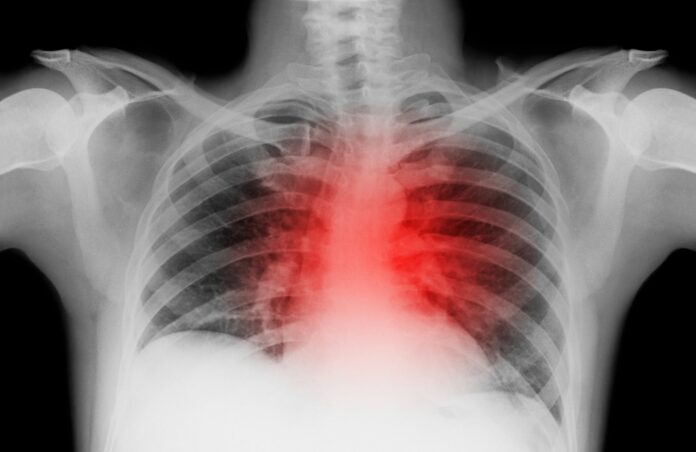-

COVID-19 is known to cause severe damage to the lungs, but new studies indicate it may also harm the heart profoundly.
COVID-19 is known to cause severe damage to the lungs, but new studies indicate it may also harm the heart profoundly.
Photo: Peter Dazeley/Getty Images
Photo: Peter Dazeley/Getty Images
COVID-19 is known to cause severe damage to the lungs, but new studies indicate it may also harm the heart profoundly.
COVID-19 is known to cause severe damage to the lungs, but new studies indicate it may also harm the heart profoundly.
Photo: Peter Dazeley/Getty Images
In the early stages of the pandemic, doctors and scientists focused on how COVID-19 — an acute respiratory disease — attacks the lungs. Two new studies out of Germany suggest that even if patients escape hospitalization, the virus can damage the heart.
It’s too soon to determine if the damage is permanent, but the findings are not encouraging.
The first study, published Monday in the Journal of the American Medical Association Cardiology, looked at the cardiac MRIs of 100 relatively young patients who had recovered from COVID-19 and compared them to MRIs of 100 similar people who had not contracted the disease. Two-thirds of the patients recovered at home.
Two months following their recovery, 78 infected patients were found to have structural changes to their hearts. A biomarker indicating myocardial injury similar to that occurring in heart attacks was found in 76 patients. Sixty patients suffered inflammation of the heart.
The average age of the infected patients was 49. None had previous heart issues or other pre-existing conditions; in fact, many were skiers returning from vacation.
The second study, also published in JAMA Cardiology on Monday, examined autopsy reports from 39 people, 78 to 89 years old, who died in April. Analysis of cardiac tissue revealed the virus had infiltrated the hearts of 24 of the patients.
The studies’ results appeared to validate concerns expressed earlier this month by John Swartzberg, clinical professor emeritus of infectious diseases and vaccinology in the the UC Berkeley-UCSF Joint Medical Program.
“There is evidence now that the virus can directly attack heart muscle cells, and there’s also evidence that the cytokine storm that the virus triggers in the body not only damages the lungs, but can damage the heart,” Swartzberg told Berkeley News. “We don’t know what the long-term effects of that may be, but it could be that we will have a population of people who survive COVID-19 only to go on and have chronic cardiac problems.”
Among those problems are chronic heart failure, a progressive illness in which the heart slowly becomes less able to pump blood throughout the body.
Boston Red Sox pitcher Eduardo Rodriguez, 27, on Sunday confirmed that he was suffering from myocarditis, an inflammation of the heart muscle, attributed to his coronavirus infection earlier this summer. Rodriguez had been cleared to pitch after testing negative, but the new diagnosis sidelined him.
Symptoms of myocarditis, according to the Mayo Clinic, include disruption of your heart muscle and your heart’s electrical system, reducing your heart’s ability to pump and causing rapid or abnormal heart rhythms (arrhythmias). The condition can lead to heart failure.
The Boston Globe’s Stat News was a source for this article.
MORE CORONAVIRUS COVERAGE:
Sign up for ‘The Daily’ newsletter for the latest on coronavirus here.
— California woman allegedly pees on floor of Verizon store after being asked to wear a mask
— Trump says virus in US will get worse before it gets better
— White House, GOP in disarray over spending plan as benefit expiration nears
— How long should you isolate if you test positive for the coronavirus? New CDC guidance says 10 days, not 14
— How Taiwan’s COVID-19 response saved lives without wrecking the economy
———
Mike Moffitt is an SFGATE Reporter. Email: [email protected]. Twitter: @Mike_at_SFGate







